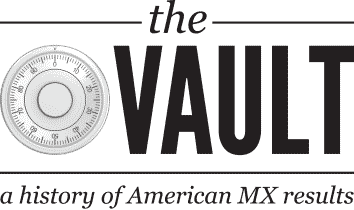It was 1983, the space shuttle Challenger made its debut, the world watched as the TV show M.A.S.H ended, the Baltimore Orioles won the World Series, the New York Islanders won the Stanley Cup again and the compact disc debuted, signaling the end of vinyl.
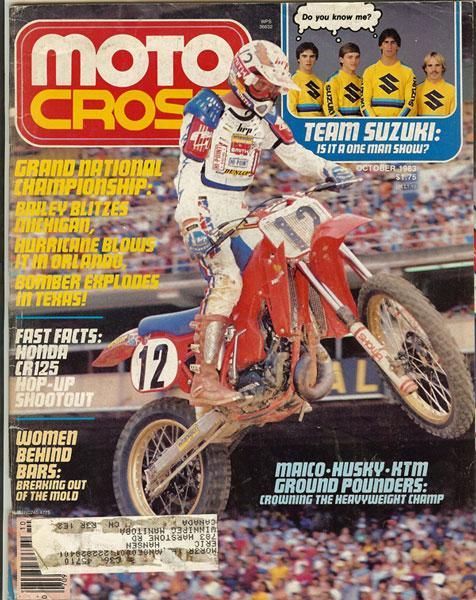
American motocross was in a good spot with a couple of World Champions over in Europe (Lackey and LaPorte), and Team USA was now the two-time and defending champion at the Motocross des Nations. The battle over here though was still raging and 1983 would prove to be a tough one indeed.
The big off-season news was defending supercross and 250 outdoor champion Donnie Hansen injuring himself while practicing for the 1982 MXDN. Hansen would never get a chance to race at a top level again. The other big news was Bob Hannah switching over from Yamaha to Honda to try and get himself back to the top. The Hurricane, never one to be shy with his opinions, took to the press to bash Yamaha. He wanted out so badly that he took a contract from the red team for a much lower salary and big win bonuses.
Hannah’s move to Honda coincided with their reborn race effort under Roger DeCoster and Dave Arnold. Sporting Hurricane II on the back of his pants, Hannah was certainly very fast that year on the works Honda HRC250, but he was unable to stay healthy enough to win any titles. In fact Bob would win the most supercrosses out of anyone (five wins) but he lost the title when he hurt his wrist. Up and coming star David Bailey captured the indoor title by the slimmest of margins over Suzuki’s Mark Barnett.
The 1983 AMA Nationals debuted a new format, as all three classes (125/250/500) were held at the same track on the same day. In past years, each weekend featured a combination of two of the classes at one track, while the other class raced somewhere else. The series also saw the addition of the Gainesville, Florida round, which would stay on the calendar for more than fifteen years, as well as the debut of the Millville, Minnesota round which is still going strong today.
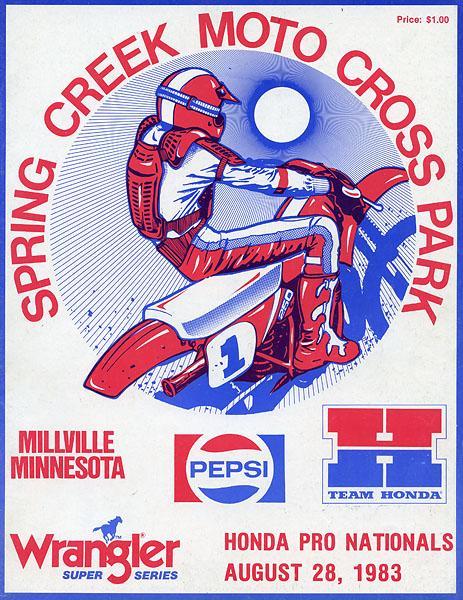
The 125 class saw Mark Barnett’s three year reign end. He was still fast, as he actually won more races than the year before, but ended the series third in the championship chase. A slow 125 and some DNF’s would haunt the Bomber, and he would have to hand his crown over to Honda’s Johnny O’Mara. O’Mara was a budding superstar on a very fast Honda who trained just as much as Barnett and used speed and consistency to win the title. Jeff Ward was right there also, and those three had to deal with a 16-year old rookie from El Cajon, California named Ronnie Lechien.
Lechien won three nationals this season and even held off Barnett at the finale in Millville for 40 minutes—a shocker. Barnett needed that moto win, also, as the Suzuki rider was going for the all-new Grand National Championship title, which combined motocross and supercross points. The winner would wear a new yellow on blue number one plate for the 1984 season. Lechien’s win in Minnesota was a clear signal that the kids were now in command in the 125 class.
In the 250 class, it was a repeat of supercross as Hannah took six wins (the most in the class) but injuries kept him from winning the national title. Hannah was by far the fastest man in the game, but the “Brittle Bob” nickname picked up due to his rising injury count. Bailey would put a capper on his fantastic year by winning the outdoor title to go along with his indoor one, and repeating what his teammate Donnie Hansen had done the pervious year. With the two titles also came that first-ever Grand National Championship and signaled that the smooth, calculated Bailey was going to be a force for the next decade. Kawasaki’s first Team Green superstar, “Bullet” Billy Liles was the only other rider other than Hannah and Bailey to win a 250 national when he captured the Lake Whitney, Texas race for his first career outdoor win.
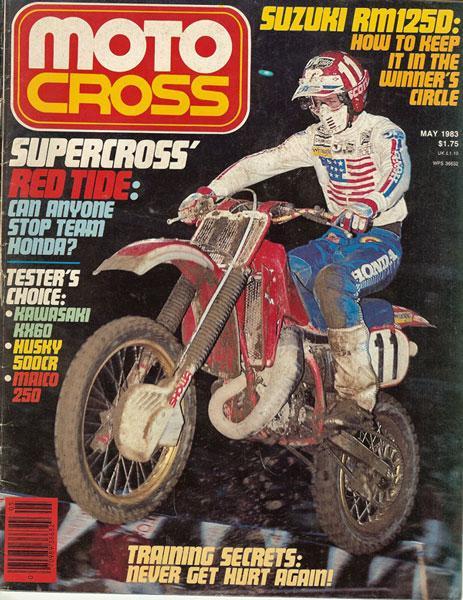
After narrowly missing out on the 250 title in 1982, Yamaha’s Broc Glover returns to the 500 class to beat down everybody else and claim his second 500cc title. The Golden Boy wins six out of the eleven nationals and tells this funny story on how he probably should have won seven.
“So I was leading the series by a good point margin and the only way Honda’s Danny “Magoo” Chandler was going to win was to have me DNF,” Glover tells us today. “At Lakewood, the Honda bike is running so much better than my bike and we were all going pretty well. Chandler was screwing with me in the first moto, he chopped me off in the air, cut over on me and in the next corner he tried brake-checking me. I finally made a clean pass and won the moto.”
“The next moto, same story, I come up on him while he got the holeshot. The whole 40 minutes of the race, he was trying to sucker me into crashing or hurting myself and I wasn’t going to do that. We came up over a hill, then came out of a gully and made a sharp 90-degree turn over this hump. I came to the top of the thing and he would stop in the rut and wait for me to run into him. This was lap after lap. So I just cleaned him out on the last lap, just ghost rode my bike into him and we both ended up falling down this hill, our bikes and everything. It was really steep! We ran down there and everything was tangled up. By the time we got going, some 30-seconds or so, Goat Breker came around the turn and won the moto. He went 3-1, I went 1-3 and Magoo went 2-2. That was what I remember from that year.”
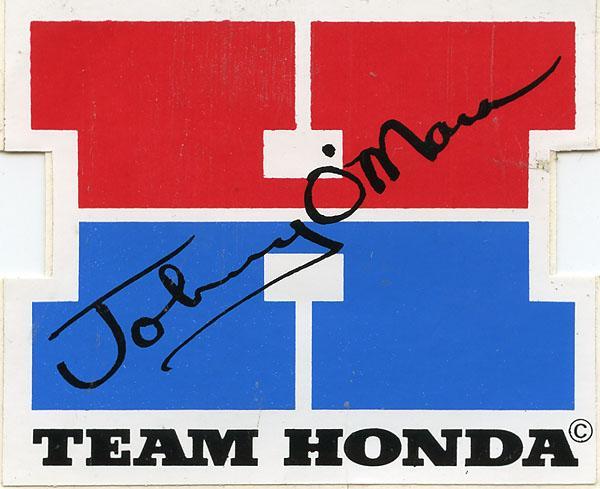
After Honda provided the entire team for the 1981 and 1982 Motocross des Nations, the other OEM’s got onboard and sent a mixed team of Honda’s David Bailey, Suzuki’s Mark Barnett, Yamaha’s Broc Glover and Kawasaki’s Jeff Ward. The result was the same though as the American’s came home with another win.
